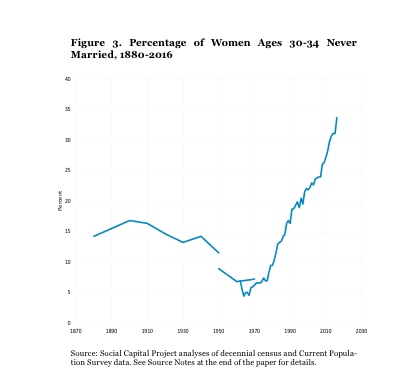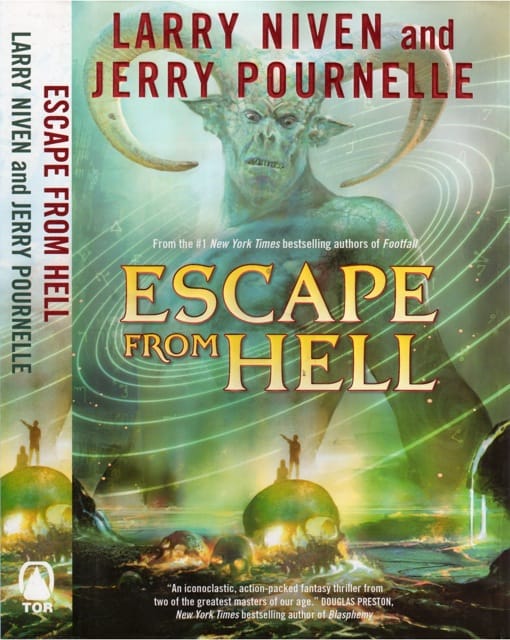The Long 2007-05-21: In Praise of Piracy; Immigration as Weakness; Perpetual Copyright; Flicker Today

The anti-natalist project
John Reilly references an “anti-natalist project” here, and in other places. It was largely implicit in many policies of the late twentieth century, but you can find the evidence if you look. If you want to get a feel for why this was seen as a huge problem, the science fiction of the Campbellian “golden age” is a good place to start. Overpopulation was a common theme, and it continued to be for authors like Niven and Pournelle into the seventies and eighties.
As Steyn will no doubt tell us in a later column, immigration policy is a function of demographic policy, which comes down to whether a government encourages or discourages high birth-rates. In a way, the Social Security issue is part of the same question, because the stress on the system is the result of a successful (though implicit) antinatalist policy in the 1970s and '80s. For that matter, so is the same-sex marriage question, since that goes to the relative economic advantage and social prestige of marriage, which has obvious demographic implications.
Also, contra Chesterton’s bon mot, the really interesting thing about this project is how successfully it was practiced by the very people who advocated for it.
“The answer to anyone who talks about the surplus population is to ask him, whether he is part of the surplus population; or if not, how he knows he is not.” – G. K. Chesterton
In Praise of Piracy; Immigration as Weakness; Perpetual Copyright; Flicker Today
Here is some misplaced moral outrage for you:
Explorers for a shipwreck exploration company based in Tampa said Friday that they had located a treasure estimated to be worth hundreds of millions of dollars in what may be the richest undersea treasure recovery to date...The bountiful find is sure to reignite the long-running debate between undersea explorers and archaeologists, who view such treasure hunting as modern-day piracy.
Kevin Crisman, an associate professor in the nautical archaeology program at Texas A&M University, said salvage work on shipwrecks constituted “theft of public history and world history.”
He said the allure of treasure hidden under the sea seemed to blind the public to the ethical implications. “If these guys went and planted a bunch of dynamite around the Sphinx, or tore up the floor of the Acropolis, they’d be in jail in a minute,” Mr. Crisman said.
Yes, someone who blew up the Acropolis would be in jail in a minute, but that's because he blew up a public monument. In contrast, a salvage operation in itself raises no ethical questions. I am as in favor as the next guy of respecting archeological sites, but there is such a thing as gumming up the works. Governments start by trying to protect antiquities but often end by making sure they will never be discovered.
* * *
Speaking of outrage, Mark Steyn is in no mood to contain his about the Senate immigration deal. He puts his finger on the most mysterious aspect of the whole question:
I'm not a fan of "bipartisanship" for its own sake. This is a very divided political culture in which bipartisanship is all but nonexistent on everything else, starting with war and national security. So, when the political class is in lockstep bipartisan mode, that's sufficiently unusual all by itself. When it's in bipartisan mode on an issue on which the public is diametrically opposed, that looks less like bipartisanship and more like the lockstep myopia of an out-of-touch one-party state...
Actually, immigration is starting to look like nothing so much as the "tax revolt" that began in the 1970s. That was a visceral revulsion on the part of taxpayers against tax rates that seemed to be rising arbitrarily high, especially at the state and local level. For tax restraint to become policy, however, a theory was needed, and several were duly adduced. Here I think we see Steyn beginning to formulate a General Theory of Immigration Control:
At some point, it's worth trying to climb over the rubble of the 2007 Z-1s and the 1986 amnesty and the 1965 immigration act, and going back to basics: What is immigration for? In the modern Western world, to question immigration in even the most cautious way is to risk being demonized as a racist. Most of us like to see ourselves as nice people, and so even to raise the subject of immigration -- even illegal immigration -- feels like an assault not on distant foreigners so much as on our self-image. Yet, whatever the virtuousness of immigration for the host society, a dependence on it is a sign of profound structural weakness, and, when all the self-congratulation about celebrating diversity has died down, that weakness ought to be understood as such. The unspoken premise behind this bill is that the socioeconomic order in America is now so dependent on the vast apparatus of a giant shadow state of illegal immigrants that it cannot be dismantled but only legitimized and thereby expanded. If that is true, that is a basic structural defect that should be addressed honestly.
As Steyn will no doubt tell us in a later column, immigration policy is a function of demographic policy, which comes down to whether a government encourages or discourages high birth-rates. In a way, the Social Security issue is part of the same question, because the stress on the system is the result of a successful (though implicit) antinatalist policy in the 1970s and '80s. For that matter, so is the same-sex marriage question, since that goes to the relative economic advantage and social prestige of marriage, which has obvious demographic implications.
For the political system to simply acknowledge that this constellation of questions is a single issue will mark a change of era. And note that it is not obviously a conservative issue, or at least not conservatism in the way we have used the term for the past 30 years.
From the perspective of the open-border advocates, it was a mistake to mobilize the illegal population as a political force. For excellent reasons, they object to the vexatious and unenforcible naturalization process that the Senate has proposed. Protests by immigrants would have the effect of scuttling those aspects of the compromise, but at the cost of energizing the political system as a whole in favor of closing the borders.
At this point, I think that's the best we can do: pure border security, with no changes in current law. Eventually, attrition would diminish the illegal population enough to be manageable. The political system cannot be trusted to do anything else now, or for some years to come.
* * *
Perpetual copyright is as bad an idea as perpetual debt. I am sure the editors of The New York Times think that, too, but they nonetheless favored their readers this morning with an article by Mark Helprin, now a fellow at the Claremont Institute, in favor of just that lunacy:
Absent the government’s decree, copyright holders would have no exclusivity of right at all. Does not then the government’s giveth support its taketh? By that logic, should other classes of property not subject to total confiscation therefore be denied the protection of regulatory agencies, courts, police and the law itself lest they be subject to expropriation as payment for the considerable and necessary protections they too enjoy? Should automobile manufacturers be nationalized after 70 years because they depend on publicly financed roads? Should Goldman Sachs be impounded because of the existence of the Securities and Exchange Commission?
No less a person than Instapundit was displeased:
I don't think his analogy to real estate works, though, unless copyright holders are put at risk of losing their copyrights unless they pay an annual tax on their property, or face easements by prescription, or, well, you get the idea.
When copyrights expire, the works they covered are not expropriated. The government does not get title to them or the power to dispose of them. What happens is the government stops trying to prevent people from using them. After a reasonable period of time (no more than 20 years, if you ask me), that's a good thing. There is a public interest in the expansion of the public domain.
* * *
Perhaps I should explain why I just put up a very old review (1992!) on my website, of Theodore Roszak's Flicker: A Novel. I had forgotten I had written it. I was reminded only because I was looking into the background to Richard Stanley's documentary, The Secret Glory, about the Cathar enthusiast and Grail hunter, the sometime Nazi Otto Rahn. Cathars; horror movie directors; Weimar Germany: that's the backstory for the novel.
As I look at the review after all these years, it seems to me that there is much less of the nihilism in the film industry, and in popular culture in general, that Theodore Roszak so hilariously satirized. What we have now is artistic incompetence and intellectual exhaustion.
There is such a thing as progress.
Copyright © 2007 by John J. Reilly
Support the Long View re-posting project by downloading Brave browser. With Both Hands is a verified Brave publisher, you can leave me a tip too!



Comments ()